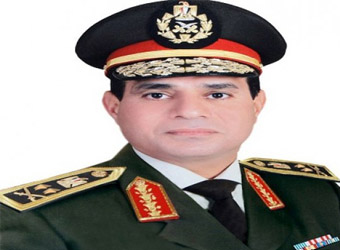Egypt’s army reprised its role as hero in a new act of the country’s political drama on Monday with a move celebrated by protesters as a decisive blow against an unpopular president just two and half years after the military unseated his predecessor.
Cairo’s Tahrir Square erupted in party scenes reminiscent of the night Hosni Mubarak was forced from office in 2011, as hundreds of thousands of people rejoiced at an army move they believed heralded the end of President Mohamed Morsi’s rule.
Fireworks burst over the square that was the theatre for the historic 2011 uprising. Delighted protesters waved flags, sounded horns, beat drums and danced in joy at what was widely seen as an army ultimatum to the Islamist head of state.
In 2011, as now, the protesters praised the army for responding to the “will of the people”, disregarding the Islamists rallying in smaller numbers across the other side of town in support of the president freely elected last year.
In Tahrir, there was no talk of the tensions that made the generals the focus of protester fury during 17 months of military rule punctuated with crises. Instead, there was relief that Mursi was on his way out – or so they believed – thanks to the army initiative that did not define his future.
“The army and the people are one hand!” they chanted – a refrain heard the night Mubarak was toppled – as five army helicopters flying Egyptian flags circled over central Cairo.
Spurred on by mass anti-Mursi protests, the army moved in dramatic style on Monday by giving the president and his opponents 48 hours to resolve a standoff that has beset his first year in office. Failure to meet the people’s demands, the army said, would result in the military unveiling and implementing its own road map for the country.
Many analysts doubt the army wants to move back into an executive role. Diplomats say 17 months of interim rule fraught with economic and political crises was more than enough for the generals. In its statement on Monday, the army reiterated its commitment to the nascent democracy.
For Akram Mahmoud, a 50-year old civil servant, a year of Mursi’s presidency had made army rule an attractive option.
“I prefer the army, I want the army to take power. There is nothing greater than our armed forces,” he said, clutching an Egyptian flag as he cursed himself for having voted for Mursi.
He said he had voted for the Muslim Brotherhood politician because he saw him as a man who “knew God”. A year later, he had concluded that he was a man who “traded in religion”.
It echoes the complaints of Egyptians who also list the country’s economic crisis and what they perceive as a Brotherhood power grab as reasons why Mursi must go.
The Islamists rallying for Mursi see the protests demanding he step down as an assault on democracy. If the army is seen as a hero to Mursi’s opponents, Islamists rallying outside a mosque in northern Cairo felt differently.
“Today’s statement is blatant interference in the president’s affairs,” said Mohamed Sabry, an Islamist camped out with others at the rally where their leaders addressed the crowd late into the night.
But to political opposition parties that have struggled to get organised since Mubarak was toppled and lost a series of elections to the Brotherhood, the army’s intervention was a welcome if imperfect way forward.
“They are very strongly supported by the public,” said Mohamed Aboulghar, head of the Egyptian Social Democratic Party. “The army will be very reasonable,” he added.
“We are optimistic, but not completely optimistic.”
Source: Reuters



